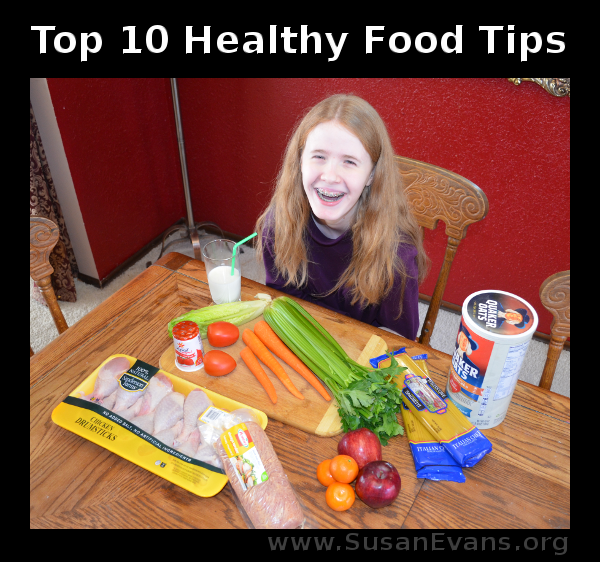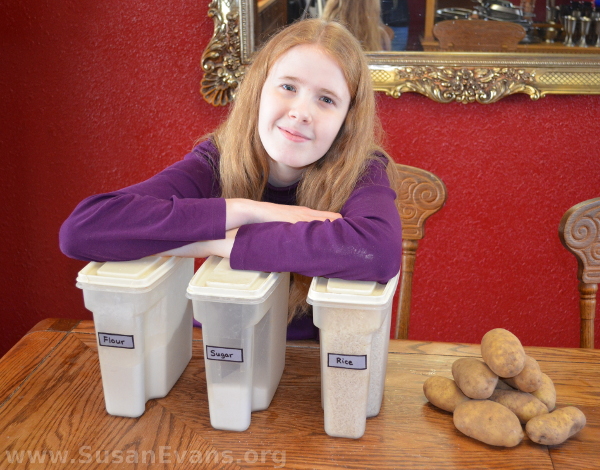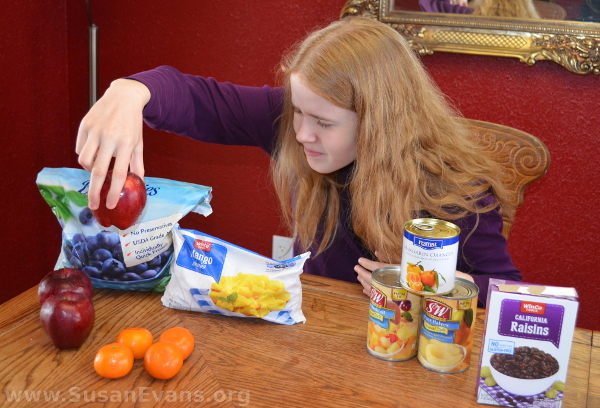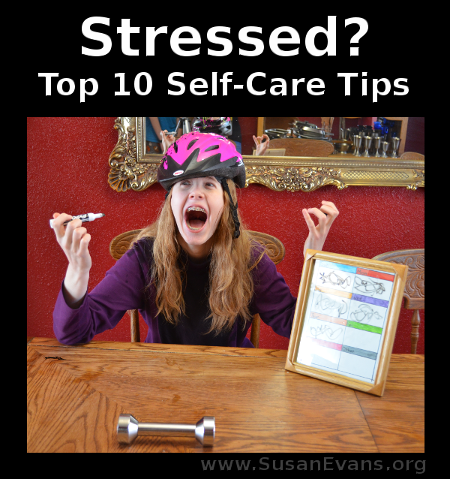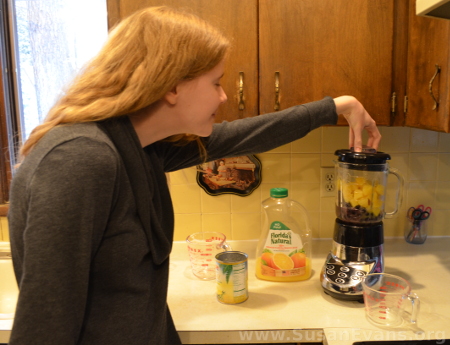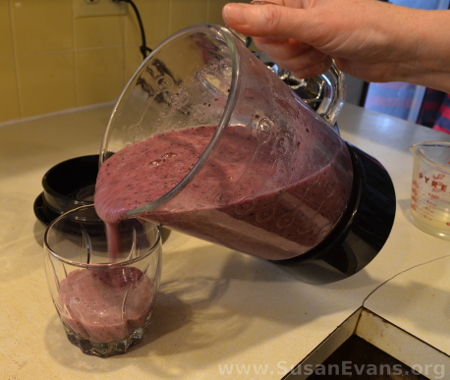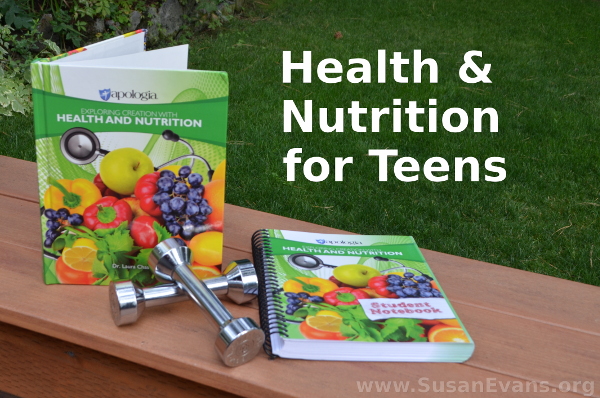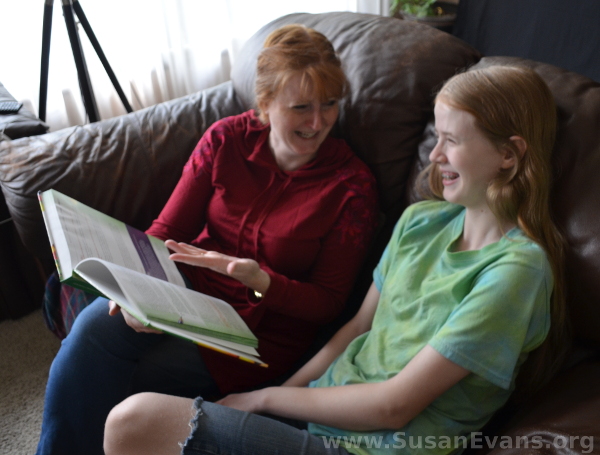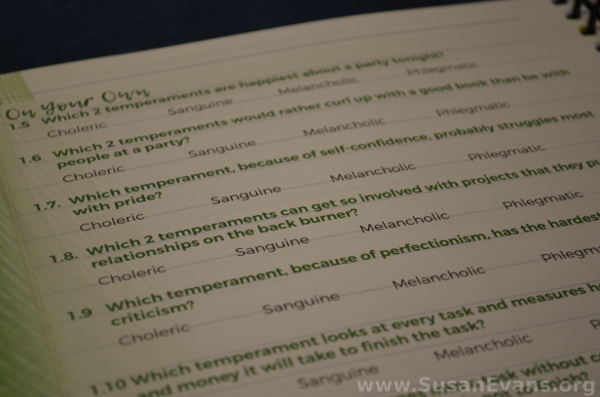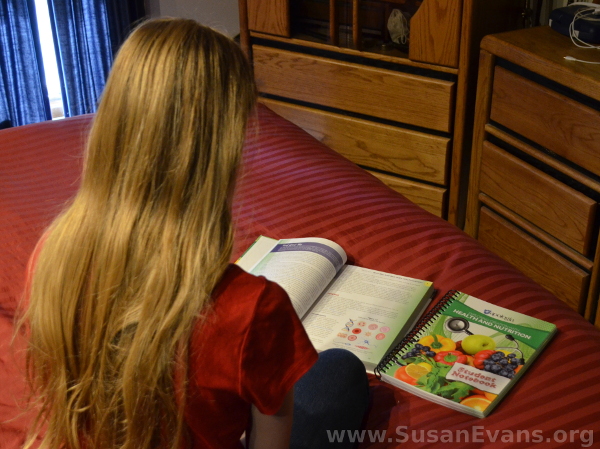My daughter Rachel and I have been learning a lot about food and how it affects our bodies. Rachel created another fun video about hands-on health called “Top 10 Healthy Food Tips.” These tips come directly from her high school health book by Apologia (link is at the bottom of this post):
Healthy Food Tip #1: Eat a variety of foods. Meat, dairy foods, beans, vegetables, and whole grains all have their parts to play.
Each type of food provides different nutrients that are needed by the body. If you don’t eat enough protein, for example, your muscles will feel weak and start hurting because your body will start taking protein away from your muscles to keep your other body systems alive. Without fruits and vegetables, you will not get essential vitamins and nutrients for your body, and you will suffer with poor digestion and other problems.
Healthy Food Tip #2: Choose unprocessed food, closest to its natural state. Choose fruit over fruit juice.
The less processed food is, the better it is for your body. This means that raw fruits and vegetables, for example, are better for you than packaged foods that contain preservatives. Even with fruit, the bulk in the fruit (like the pulp of the orange) has nutrients that are absent in the orange juice that has been pasteurized, a process by which it is heated to high temperatures which strips the orange juice from most of its nutrients. Preservatives are then placed into the juice. So it’s way better to eat an orange, or to squeeze it right before drinking it. The same is true for any other juice.
Healthy Food Tip #3: Limit white carbohydrate foods. These include white flour, white sugar, white rice, and white potatoes.
When we studied biology in our homeschool, we did an experiment where we placed white bread and wheat bread with some water drops in a plastic bag. The wheat bread spoiled a lot faster than the white bread, which had less for the mold to feed on, indicating that mold didn’t even want to eat the white bread because it didn’t recognize the bread as actual food.
The darker rice has the bran and germ still in it, giving it more nutrients, whereas the white rice has the nutrients stripped from it. So try to stay away from white carbohydrates and instead, eat whole grains.
Healthy Food Tip #4: Enjoy the delicious nutrition of eggs; just average one a day.
Growing up, I heard that two eggs a day is about all you want to eat because of the cholesterol. (This health book recommends eating only one egg for that reason; I’ve also researched online to find that eating a lot of eggs causes heart disease.) But the eggs also contain Omega 3, protein, and other vitamins, so they are good to eat. I’ve heard people argue that the cholesterol in eggs is the good kind, and that the nutrients in the eggs are hard to find elsewhere. So enjoy your eggs; just don’t go overboard–one or two a day is plenty.
Healthy Food Tip #5: Grain and beans together give you all the essential amino acids.
When I grew up in Guatemala, everybody ate black beans and rice. I never knew that together, they provide a complete protein with all the amino acids. Complete proteins contain all 9 essential amino acids, so sometimes you have to combine a grain (like rice or corn) with a bean to get everything you need.
Healthy Food Tip #6: If you have a choice, start with unsalted food and then add a sprinkle of salt at the table if needed.
If you eat too much salt, your blood pressure goes up because of extra water stored in your body. I know so many people who are on high blood pressure medication. I wonder if they cut out salt (as much as possible), if their bodies would not need the medication. For example, if you put cheddar cheese and ham into your scrambled eggs, there is no reason to add salt because the eggs are already flavored. Oregano and other herbs are good for you, unlike salt, so use those instead.
Healthy Food Tip #7: Three 8-ounce servings of milk or yogurt each day cover many mineral needs.
Milk is a rich source of calcium, which is needed for your bones. You can get that calcium from milk products like yogurt, cheese, and even ice cream. Milk products also contain phosphorus and magnesium. If you are lactose intolerant, you can get the same nutrients from vegetables, nuts, eggs, and whole grains.
Healthy Food Tip #8: Eat lots of vegetables, both cooked and raw. Minerals are more easily absorbed from cooked vegetables. Vitamins, on the other hand, are more plentiful in raw vegetables because vitamins are destroyed by the heat used for cooking.
I found it interesting that minerals are more absorbed from cooked vegetables. But raw is better in almost every other way because most of the vitamins are cooked out of the vegetables if you don’t eat them raw. If you grow your own vegetables, eating the vegetables right after picking them will give you the most flavor, too!
Healthy Food Tip #9: If you have options, choose fresh or frozen food over canned or dry food.
The high temperatures needed for canning remove a lot of the vitamins from the food, so it’s way better to eat fresh or frozen foods. Even dehydrated foods have to be processed, losing some of the vitamins of the food. So fresh food is best, then frozen, then dried, and last… canned.
Healthy Food Tip #10: Limit your intake of table sugar to between 6 and 9 teaspoons each day.
My dad recently died of cancer. Cancer thrives on sugar. And eating too much sugar leads to atherosclerosis, which clogs your arteries. Sugar is empty calories, so you end up gaining weight. Also, sugar makes you feel sluggish. Yes, you can eat sugar in moderation, especially a small piece of dessert with a meal, because when you have other food in your stomach, all of the contents of your stomach are digested together and you won’t feel the sluggishness you would feel if you ate a sugary snack on an empty stomach.
If you enjoyed reading about what we are learning in our health class, you would probably love the book that we are using: (affiliate link) Exploring Creation with Health and Nutrition by Apologia. We hope you enjoyed my daughter’s video where she dramatized each of these food tips, to help you remember to eat well to have more energy!
